Prophecies for 2025 from Past and Present Seers
08:38 | 03/11/2024 Print
| Table of Contents |
The quest to predict the future has captivated people for centuries. From ancient oracles to modern-day mystics, many have attempted to glimpse into the unknown, especially during times of societal uncertainty. Today, as environmental crises, political turmoil, and rapid technological advancement reshape the world, public interest in prophecies has surged.
Among the voices whose predictions are cited most frequently are the famous seers of history, like Nostradamus, Baba Vanga, and Edgar Cayce, whose cryptic visions have been linked to global events. Adding a modern perspective, younger prophets like Abhigya Anand and Kaede Uber have recently gained attention for their foreboding visions.
Learn more: 10 Craziest Prophecies That That Really Happened in History
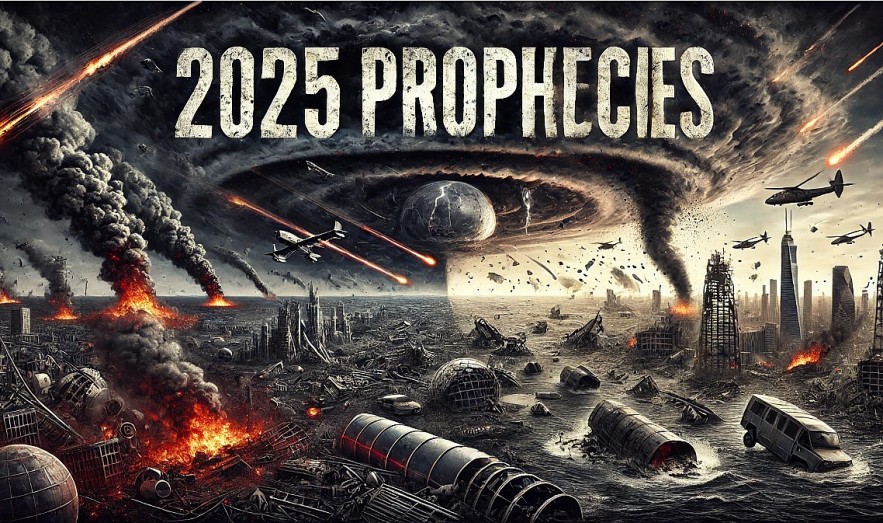 |
| Prophecies for 2025: A Collective Look at Foreboding Predictions from Past and Present Seers - Image: KnowInsiders.com |
1. Nostradamus: The Master of Ambiguous Prophecies
-
Background: Michel de Nostredame, or Nostradamus, is perhaps the most famous prophet of all time. His work, Les Prophéties, first published in 1555, comprises hundreds of quatrains that enthusiasts claim have predicted historical events like the Great Fire of London, the rise of Hitler, and the 9/11 attacks. Written in an archaic mix of French, Latin, and Greek, Nostradamus' verses are full of metaphors and symbols, making them challenging to interpret.
-
Predictions for 2025:
- Some of Nostradamus’ quatrains are often cited in discussions about the mid-2020s. One theme involves conflict, with references to “two great powers at war” and “cities burning.” Interpreters suggest these words point to potential confrontations between superpowers, possibly hinting at tensions between the United States, Russia, and China.
- Environmental catastrophe also features heavily in his predictions. Phrases like “oceans rising” and “rivers overflowing” resonate with contemporary fears of climate change. Interpreters believe that the year 2025 could bring significant environmental challenges, including severe flooding, wildfires, and storms.
- While many readers see Nostradamus as uncannily accurate, his detractors argue that the ambiguity of his verses allows for a broad range of interpretations, rendering them more suggestive than predictive.
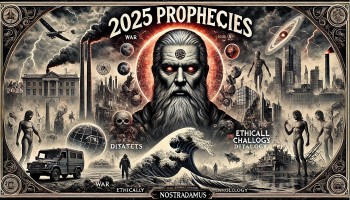 Nostradamus’ Prophecies for 2025: Insights into a Controversial Prophetic Legacy Nostradamus’ Prophecies for 2025: Insights into a Controversial Prophetic Legacy |
2. Baba Vanga: The Blind Mystic of Bulgaria
Learn more: Fact-Check: Did Baba Vanga Predict the Fall of Syria and Its Connection to World War III?
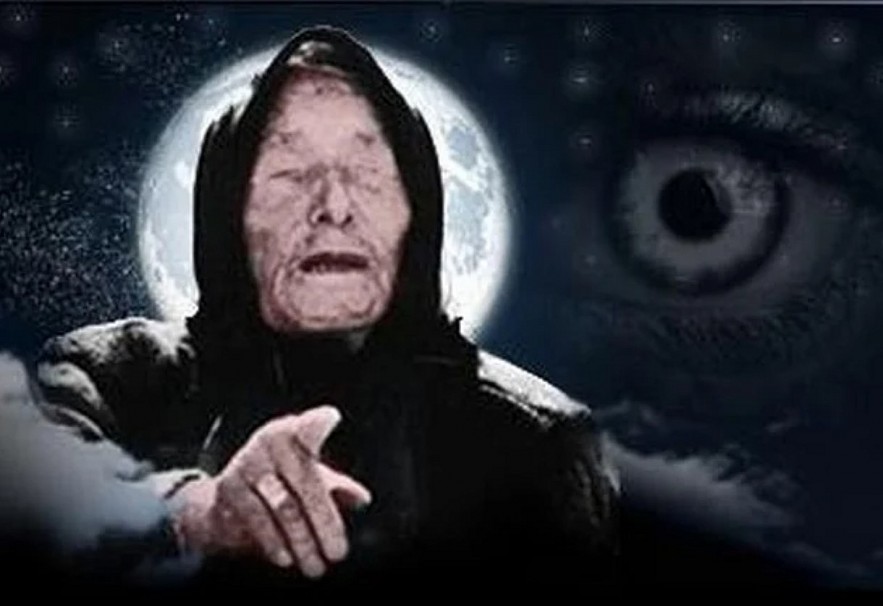 |
| Mysterious Force Helped Prophet Baba Vanga |
-
Background: Baba Vanga, a blind Bulgarian mystic, rose to prominence in Eastern Europe, attracting followers who believed she possessed insight into global events. Known for reportedly predicting events like the Chernobyl disaster, 9/11, and Brexit, her prophecies continue to gain attention.
-
Predictions for 2025:
- Baba Vanga’s predictions for 2025 focus on natural disasters and extreme weather, with followers interpreting her words as warnings of tsunamis, earthquakes, and catastrophic climate change. Some interpretations suggest she foresaw events that might devastate coastal cities and affect populations worldwide.
- She also reportedly spoke about humanity’s increasing reliance on technology, predicting that “machines would surpass human intelligence.” This statement has been linked to advancements in AI, and some followers see her words as cautionary regarding the ethical implications of automation and machine learning.
- Societal Divisions: Baba Vanga’s predictions also hint at widening social and political divides within societies. She mentioned “humanity divided,” which has been taken as a reference to current political and economic inequality. Her followers interpret this prediction as a foreshadowing of social tensions, cultural divides, and conflicts over resources.
-
Legacy and Criticism: Despite her popularity, critics argue that many of Baba Vanga’s predictions lack verifiable sources, suggesting that her reputation relies on word of mouth and vague recollections rather than documented evidence. Nevertheless, she remains an enduring figure, especially in Eastern Europe.
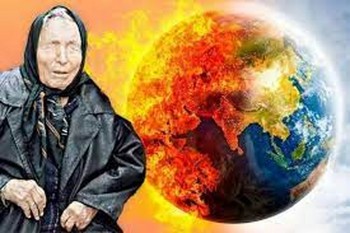 Predictions of Blind Prophet Vanga for 2025 and Beyond Predictions of Blind Prophet Vanga for 2025 and Beyond |
3. Edgar Cayce: The American Sleeping Prophet
-
Background: Edgar Cayce, known as the “Sleeping Prophet,” was an American clairvoyant who claimed to access higher realms of knowledge while in a trance. His readings, which covered topics like health, spirituality, and world events, have earned him a dedicated following.
-
Predictions for 2025:
- Cayce’s prophecies include significant earth changes, which he suggested could involve polar shifts and cause dramatic geographical and climatic changes. Followers believe that 2025 could mark the beginning of these shifts, possibly leading to extreme weather and even alterations in the Earth’s magnetic field.
- Spiritual Awakening: Cayce’s predictions also envision a period of spiritual transformation. He believed that a shift in consciousness would lead humanity towards compassion, sustainability, and unity. This spiritual awakening, he suggested, would influence major institutions and prompt a reevaluation of values.
- Technological and Medical Advances: Cayce foresaw advancements in technology, medicine, and science. He spoke about developments in medical technology that would prolong human life and prevent genetic diseases. However, he also warned of ethical dangers, stressing the need for responsible innovation.
-
Skepticism and Influence: Cayce’s prophecies are sometimes criticized for their generality. Skeptics argue that his predictions are often retrofitted to fit recent events. However, his followers continue to view him as a visionary, drawing inspiration from his emphasis on spiritual growth.
4. Abhigya Anand: The Astrological Prodigy
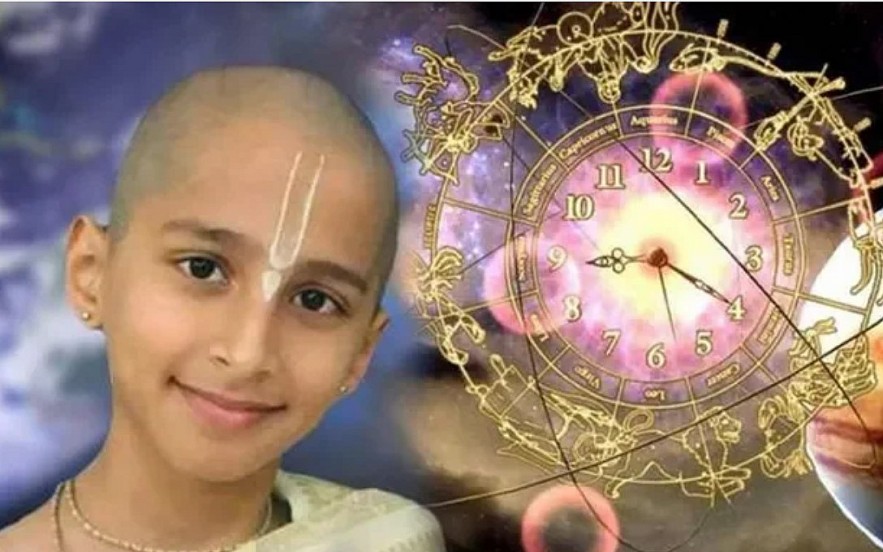 |
| Abhigya Anand Predictions for the World 2024 |
- Background: Abhigya Anand, a young Indian astrologer, gained global attention in 2019 for a video that seemed to predict the COVID-19 pandemic. He has since garnered millions of views, establishing himself as a popular figure among prophecy enthusiasts.
- Predictions for 2025:
- Economic Challenges: Anand predicts that 2025 may bring a significant economic downturn, citing planetary alignments that, according to him, indicate financial turbulence and social unrest. He suggests that conflicts between major economies could worsen financial instability.
- Environmental and Agricultural Concerns: Anand has repeatedly warned of environmental issues, emphasizing the need for sustainable agricultural practices. He foresees droughts, extreme weather, and food shortages in 2025, which he attributes to unsustainable farming practices and climate change.
- Health Risks and Alternative Healing: Anand encourages the return to natural and Ayurvedic practices, particularly as he believes 2025 could see an increase in health problems linked to lifestyle diseases.
- Public Reaction: While some consider his predictions alarmist, Anand’s insights resonate with audiences who seek alternative perspectives. However, skeptics question the scientific basis of astrology and argue that his predictions are too vague to be reliable.
5. Kaede Uber: The Young French Prophet
 |
| Kaede Uber has poor eyesight due to a congenital disease and has many similarities with Mrs. Vanga |
- Background: Often seen as a successor to Baba Vanga, Kaede Uber, a young psychic from France, reportedly discovered her abilities at a young age. Her predictions, particularly concerning environmental disasters and societal changes, have garnered a following.
- Predictions for 2025:
- Environmental Catastrophes: Uber has warned of severe natural disasters in 2025, including volcanic eruptions, earthquakes, and tsunamis. She anticipates that these events could have far-reaching consequences for global economies and may result in migration from heavily impacted areas.
- Concerns Over Technology: Uber has voiced concerns about the increasing integration of technology into daily life, cautioning that an overreliance on AI and digital systems could impact personal freedoms and lead to privacy concerns.
- Social Consciousness and Justice: Uber predicts a “new wave of consciousness,” driven by younger generations’ desire for social justice, environmental action, and equality. She foresees a transformative period where youth-led activism will influence policies and shift societal priorities.
- Public Reaction: Uber’s followers admire her youthful insight, seeing her as a visionary, while others view her predictions with skepticism, noting the speculative nature of many modern-day prophecies.
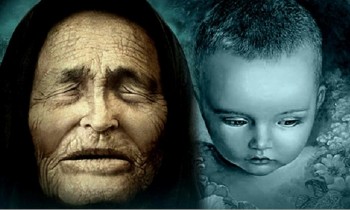 Who is Kaede Uber - the Heiress of Vanga: Surprising Prophecies And Biography Who is Kaede Uber - the Heiress of Vanga: Surprising Prophecies And Biography |
6. Craig Hamilton-Parker: British Psychic’s Dark Visions
- Background: Known for predicting Brexit and Donald Trump’s election, British psychic Craig Hamilton-Parker has made recent headlines with his predictions for the coming years.
- Predictions for 2025:
- Geopolitical Tensions: Hamilton-Parker foresees potential confrontations between Western and Eastern powers. He predicts that these geopolitical tensions could escalate into military conflicts or influence global economic conditions.
- Environmental Disasters: Hamilton-Parker also predicts natural disasters, including earthquakes and volcanic eruptions, with a focus on high-risk areas in California, Japan, and Southeast Asia. He warns that these events could cause widespread disruption and lead to a global humanitarian crisis.
- Social and Financial Crisis: According to Hamilton-Parker, the economic instability of recent years will continue into 2025, with major financial crises affecting global markets. He believes this could lead to unemployment, inflation, and increased poverty rates in various countries.
- Public Perception: While Hamilton-Parker’s predictions resonate with some followers, his critics suggest that his insights often reflect existing geopolitical risks, making his forecasts seem more like extensions of current issues than genuine prophecies.
Controversy and Skepticism Surrounding Prophecies
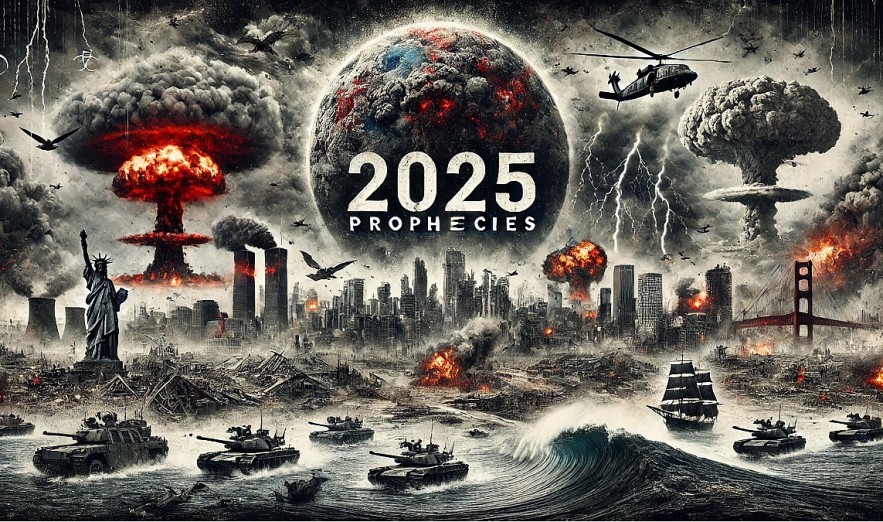 |
| Prophecies for 2025 Image: KnowInsiders.com |
Skepticism and Psychological Factors: Prophecies, while intriguing, are often met with skepticism. Psychologists note that prophecies tend to reflect societal anxieties, serving more as mirrors of current fears than as actual forecasts. Nostradamus' quatrains, for instance, are frequently cited for their ambiguity, allowing people to project their concerns onto his verses.
Confirmation Bias: Another factor in the appeal of prophecies is confirmation bias, where people remember and prioritize predictions that seem accurate while disregarding inaccurate ones. This selective memory has helped maintain the appeal of prophetic figures, especially those whose predictions align with major global events.
Believers’ Perspective: Despite the skepticism, many people find value in prophecies, viewing them as cautionary tales or reminders to approach the future thoughtfully. Believers argue that even if prophecies are not literal truths, they offer valuable insight into the challenges humanity faces.
Conclusion: What Do These Prophecies Mean for 2025?
Prophecies, both old and new, continue to captivate people worldwide. The visions of historical seers like Nostradamus and Baba Vanga are compelling, while modern voices such as Abhigya Anand, Kaede Uber, and Craig Hamilton-Parker add fresh perspectives to a timeless phenomenon. As humanity approaches 2025, the themes of conflict, environmental catastrophe, technological advancement, and social transformation echo across different prophets' predictions, reminding us of the potential challenges ahead.
Though many critics argue that these predictions lack concrete evidence, others see them as prompts to consider humanity’s trajectory more mindfully. Whether or not they are accurate, these prophecies underscore the importance of preparing for the future, navigating change responsibly, and working toward a better world.
Frequently Asked Questions (FAQs) About the 2025 Prophecies
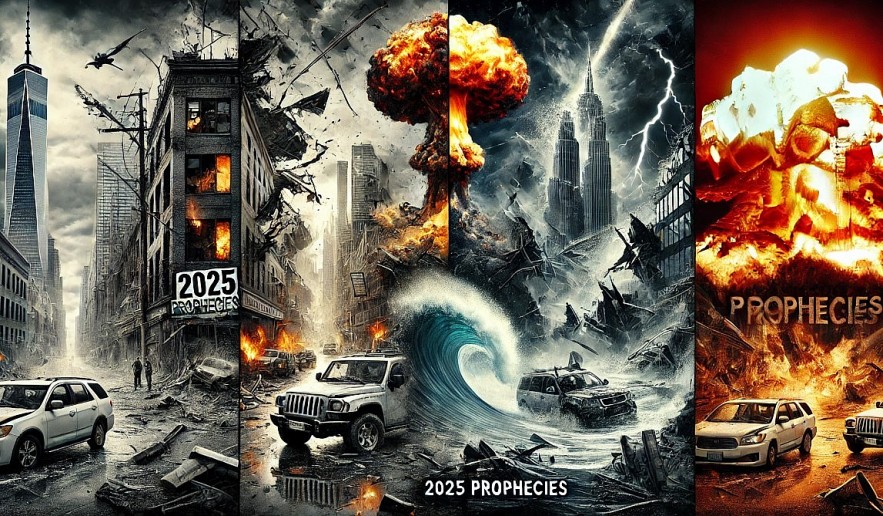 |
| Prophecies for 2025. Image: KnowInsiders.com |
Q1: Who are some of the most famous prophets with predictions for 2025?
A: Predictions for 2025 come from both historical prophets, like Nostradamus, Baba Vanga, and Edgar Cayce, as well as contemporary figures, including Abhigya Anand, Kaede Uber, and Craig Hamilton-Parker. These prophets span different cultures and eras, each with their own approach to prophecy, ranging from cryptic quatrains to astrological insights.
Q2: How accurate have past predictions from these prophets been?
A: The accuracy of these predictions varies widely. Some enthusiasts claim that Nostradamus and Baba Vanga predicted significant events like the 9/11 attacks or Brexit, while others argue that these interpretations rely on selective reading and can be retrofitted to match past events. Modern prophets, like Abhigya Anand, have been credited for seemingly accurate predictions like the COVID-19 pandemic, although skeptics argue that some details were vague or coincidental.
Q3: Are Nostradamus’ prophecies for 2025 specific?
A: Nostradamus’ prophecies are famously ambiguous. His quatrains use metaphorical and symbolic language, making them open to interpretation. While some readers connect his verses to current concerns—such as climate change, war, and social upheaval—others see his work as so general that it can apply to multiple situations across time.
Q4: What did Baba Vanga predict for 2025?
A: Baba Vanga’s followers interpret her predictions for 2025 to include extreme weather events, technological advancements, and societal divisions. She allegedly foresaw natural disasters like tsunamis and earthquakes, as well as the ethical issues arising from artificial intelligence. However, because Baba Vanga’s predictions were rarely documented firsthand, many rely on oral accounts, leading to debate about their authenticity.
Q5: Why are some people skeptical of Abhigya Anand’s predictions?
A: Critics argue that Abhigya Anand’s predictions, based on Vedic astrology, are often broad and reflective of existing global challenges. While he gained attention for seeming to predict the COVID-19 pandemic, skeptics note that his warnings were general and could apply to many crises. Additionally, astrology remains a controversial field, with many questioning its scientific basis.
Q6: What is the role of technology in these predictions for 2025?
A: Many prophecies, particularly those from Baba Vanga, Craig Hamilton-Parker, and modern prophets, emphasize both the potential and ethical challenges of technology. Predictions include advancements in AI, potential privacy concerns, and the over-reliance on digital systems, suggesting that technology will continue to reshape society, but with associated risks.
Q7: Are there common themes in the predictions for 2025?
A: Yes, recurring themes include global conflict, environmental disasters, economic challenges, technological advancements, and social transformation. Many prophets foresee a period of upheaval that could lead to both challenges and opportunities for growth, reflecting current societal anxieties.
Q8: Can these predictions be used as reliable forecasts for planning the future?
A: Most experts agree that prophecies should be viewed with caution. While they may provide insight into societal concerns, they are not scientifically verified and often rely on ambiguous language. They can, however, encourage reflection on current issues and inspire conversations about future challenges and responsibilities.
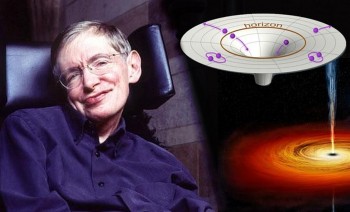 Some Stephen Hawking's Prophecies Come True - Fact Check Some Stephen Hawking's Prophecies Come True - Fact Check Stephen Hawking is one of mankind's foremost astrophysicists. Some of his prophecies about the world are coming true. |
 What Did Baba Vanga Predict for the World 2024: Top 9 Dizzying Prophecies What Did Baba Vanga Predict for the World 2024: Top 9 Dizzying Prophecies Based on the prophetic predictions of Baba Vanga, it is anticipated that the global landscape in the year 2024 will undergo significant transformative shifts, accompanied ... |
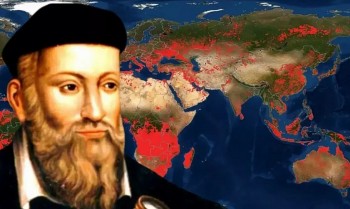 What Did Nostradamus Predict for the World in 2024 And Fact-Check What Did Nostradamus Predict for the World in 2024 And Fact-Check Fact - Check: Nostradamus Prophecies 2024 - What did Nostradamus predict for the World in 2024? |
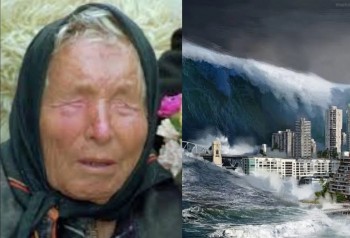 Vanga - Nostradamus Prophecies About Japan's Earthquake in 2024 Vanga - Nostradamus Prophecies About Japan's Earthquake in 2024 Vanga, the blind prophet, once prophesied that a significant earthquake would strike the Pacific Rim region in 2024. French prophet Nostradamus also had a similar ... |
Jenny Lee
Article URL: https://knowinsiders.com/prophecies-for-2025-from-past-and-present-seers-41041.html
All rights reserved by KnowInsider
